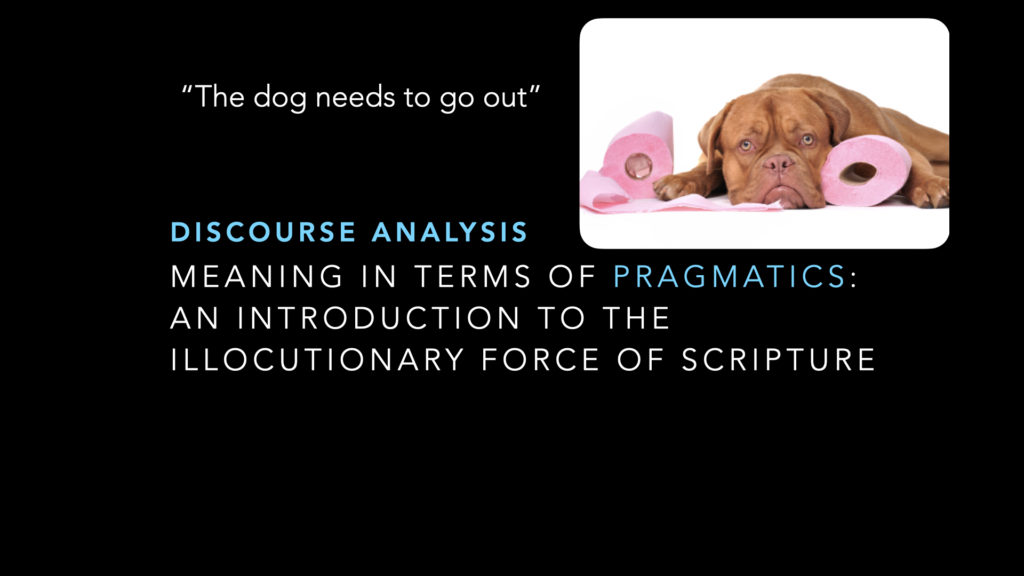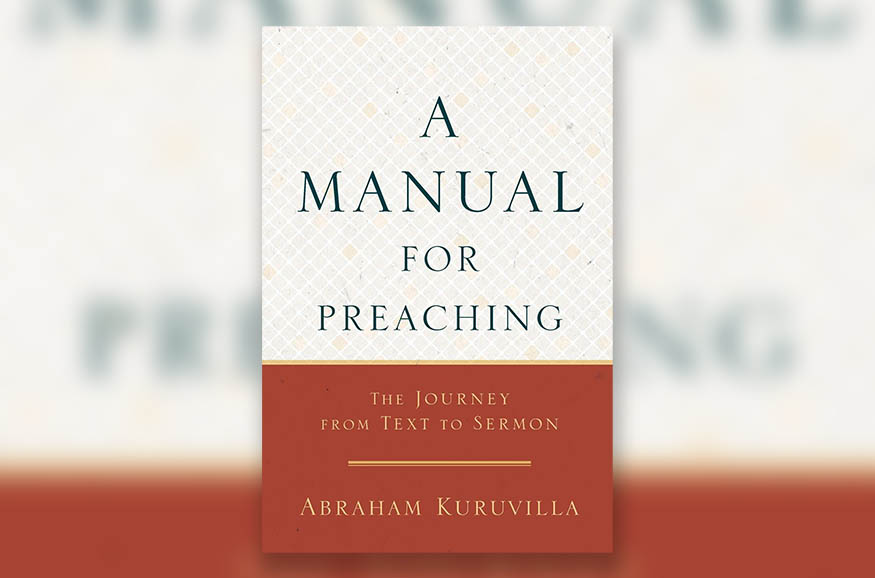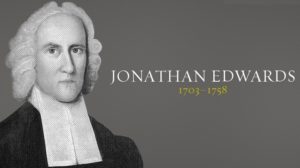
I am in the privileged position to be about 100 pages into my Ph.D. dissertation, writing on a topic that I am extremely interested in:
exploring whether or not an aspect of speech act theory, illocutionary action, provides a welcomed link between meaning and application.
If you’ve been preaching or teaching Scripture for any length of time, you are probably aware of how difficult it is at times–apart from the practical sections of most NT epistles–to move from meaning to application. We were taught detailed methods for doing exegesis; we were not given much help, if any, for doing theological exegesis that highlights Scripture’s function for the church.
Enter pragmatics, speech act theory, and, especially, this thing called illocution.
Using the image above, illocution, analyzes what the person means when they say to someone else, “The dog needs to go out.”
If Michele said that to me and I responded with, “That’s a nice fact, Dear,” she would quickly say, “What I meant was, please take the dog out.”
This morning I had the privilege of preaching Matthew 5:1-12, commonly known as the Beatitudes.
There are two prominent illocutionary acts in these verses. The easiest one to locate is in v. 12. The verse contains the command: “Rejoice and be glad…” The command itself equals the illocutionary intent of Matthew.
The tougher illocutionary act/intent is not so easy, but you will encounter it over and over again in both Testaments. All of vv. 3-11 begin with, “Blessed are…”
Jesus teaches His listeners a statement of reality: these kinds of people are blessed. In order for anyone to put v. 12 into practice, they must first believe that Jesus’s stated reality is true of their situation. The stated reality is intended to elicit an act of faith.
Watch for various statements of reality in either Testament God will receive glory in the church and in Christ Jesus (Ephesians 3:21) as you encourage your listeners to respond in the way God intended.
Randal











